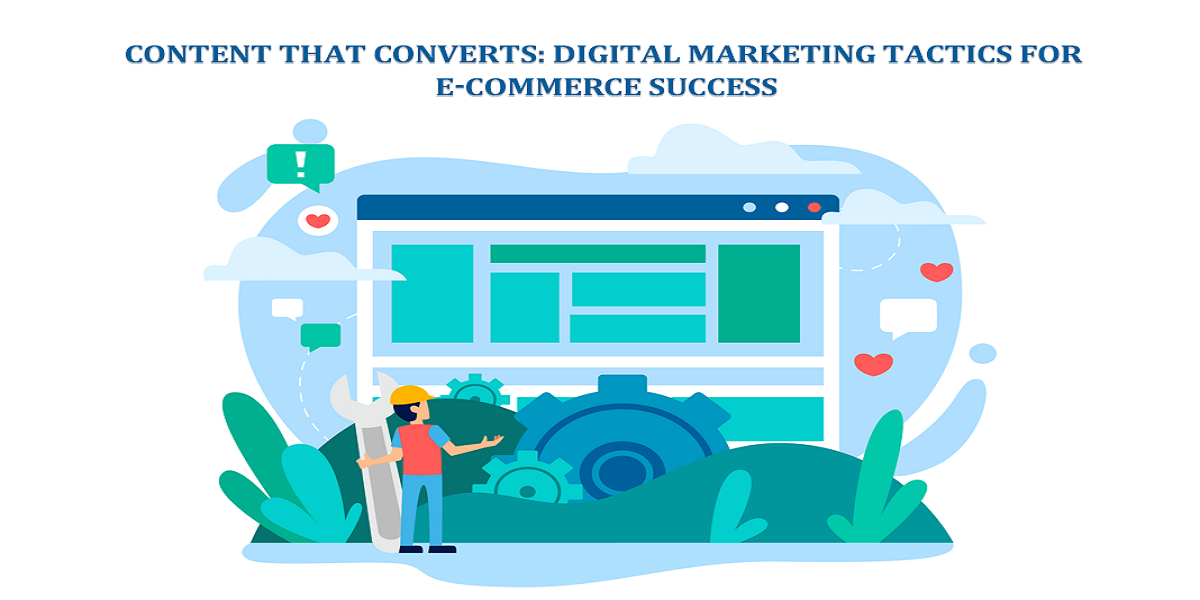.png)
The Metaverse Revolution: How Artificial Intelligence is Shaping Our Virtual Reality
- By Yokesh Shankar
- 08-08-2023
- Artificial Intelligence
Introduction to the Metaverse and Artificial Intelligence
Users can participate and create experiences in real time in the constantly changing metaverse. This digital environment is growing and developing significantly thanks to artificial intelligence (AI), which makes it possible to create more realistic and interesting realms. Machine learning and the metaverseBecause they enable a deeper and more intense connection between various systems, devices, and people, these two technologies are already altering our way of life.
AI in the Design of the Virtual Environment
Procedural Content Generation
Procedural Content Generation (GCP) is a technique used in the metaverse to automatically and efficiently create worlds, objects, and characters. AI is the force behind GCP, allowing content to be generated dynamically and adaptively based on user needs and preferences.
Simulation of Realistic Behaviours
AI is essential for modelling realistic behaviours in the metaverse, including those of objects, environments, and non-player characters (NPCs).
AI in Social Interaction in the Metaverse
Communication and Translation in Real Time
AI is also improving social interaction in the metaverse by enabling real-time communication and translation between users of different languages and cultures. This fosters inclusion and diversity in the Metaverse Development and creates opportunities for collaboration and the creation of global virtual communities.
Avatars and Virtual Representation
Avatars are digital representations of users in the metaverse, and AI plays a major role in their creation and customization. Machine learning algorithms and recommendation systems allow users to design unique and realistic avatars, reflecting their identity and personality in the virtual world.
The Future of the Metaverse and AI
The metaverse and artificial intelligence will continue to evolve together, offering new opportunities and challenges. As AI advances, virtual worlds will become more realistic and immersive, and interactions and experiences in the metaverse will become increasingly personalised and exciting.
What can artificial intelligence do in virtual spaces?
Generate virtual spaces in real time
For starters, AI can be used to automatically and procedurally generate content in the VR environment. This allows creative designers to speed up their work and build more ambitious experiences in less time . In addition, it also allows virtual worlds to be created and adapted in real time, according to the needs and actions of the users. AI algorithms can dynamically generate landscapes, scenery and elements, thus ensuring a unique and varied experience. For example, we could have a virtual space that we could customise in an almost unlimited way or roam the Metaverse with a pet generated from the characteristics that we want.
Create more realistic and intelligent avatars
For added realism, AI allows avatars and virtual characters within VR to behave more realistically and respond intelligently to user actions and gestures. AI algorithms can interpret and analyze user movements, leading to a more fluid and natural interaction in the virtual environment . This opens the door to specialized virtual advisors who could answer all our questions and help us at all times.
Learn from data to improve virtual experiences
Additionally, the AI has the ability to analyse the data generated by users during their interactions in VR. This allows AI systems to tailor experiences in real time to meet individual user preferences. By learning from past interactions, the AI can deliver personalized content and adjust challenges or difficulty levels (in the case of entertainment experiences or sports training) to ensure a more rewarding experience.. In fact, it can be used to provide accessibility to experiences, adapting to the needs of each individual, changing color scales for color blind people, increasing the size of letters or buttons for the elderly, stabilizing hand movement for people with Parkinson's disease, or describing images for people with visual disabilities.
Translate in real time in multicultural virtual environments
And what is surely going to revolutionise the Metaverse is the ability of AI in translation and communication in multicultural VR environments. AI algorithms can recognize and translate speech and text in real time, facilitating communication and collaboration between users of different languages and cultures by connecting people's lives in the Metaverse , removing barriers and enabling the concept of the Metaverse as an accessible, inclusive and global world that we all want.
The Risks of AI and the Metaverse
While the combination of artificial intelligence (AI) and virtual reality (VR) presents many exciting opportunities, it also carries potential risks that we must be aware of.
Creativity and originality
On the one hand, the automatic generation of content through AI in VR could lead to saturation of similar experiences and a lack of originality. If we put too much trust in algorithms, we could lose human creativity and diversity in creating virtual worlds.
Privacy & Security
In addition, the realism of AI-controlled avatars and virtual characters can raise ethical concerns, such as privacy, emotional manipulation , or even not knowing how to differentiate between a virtual avatar and a person.
If AI can interpret and analyze our movements and gestures, to what extent will our privacy and free expression be respected in these virtual environments?
In addition, real-time tailoring of experiences based on our personal data could lead to the manipulation of our preferences and limit our exposure to new ideas and perspectives. Large volumes of user data being collected, including their movements, gestures, preferences, and behaviours, creates privacy and security issues because it leaves personal information open to abuse or cyberattacks. Establishing explicit privacy policies and ensuring that the necessary precautions are taken to protect user data are vital.
Discrimination and exclusion
It is also important to consider the challenges related to translation and communication in multicultural environments. Although AI can facilitate communication between different languages, misunderstandings and loss of important cultural nuances can also occur. We are aware that communications may contain cultural, gender or racial biases, which AI systems can perpetuate and amplify in the Metaverse. This raises ethical and social concerns in terms of discrimination and exclusion, so it is important to conduct an assessment and mitigation of biases in the AI systems used in the Metaverse.
How will Artificial Intelligence empower the metaverse?
The concept of the metaverse was first coined by writer Neal Stephenson in the early 1990s in his novel "Snow Crash" where it is presented as " an urban environment, built around a single 100-metre-wide highway that completely runs around the 65,536 km (216 km) circumference of a perfect sphere of black, devoid of detail."
One of the most current perspectives on the Metaverse is that offered by Coinbase, which uses Matthew Ball's definition:
The Internet of the future will be a vast, persistent, interactive, and interoperable platform made up of linked virtual worlds where users can interact socially, do business, play, and create.
The metaverse is a step beyond Web 3. In its most comprehensive form, it would consist of a network of decentralised, interconnected virtual worlds with a working economy where people will be able to carry out nearly all activities currently possible in the real world.
Another very interesting vision is that of the CEO of Beamable, Jon Radoff, who has divided the metaverse into 7 layers: experience, discovery, creator economy, spatial computing, decentralization, human interface and infrastructure. Thus creating the concept of the Metaverse value chain , as shown below:
Key applications of AI and the metaverse
In this section we are going to expose four of the key applications of AI: healthcare, manufacturing, smart cities and gaming.
health care
The healthcare industry has started to exploit some revolutionary techniques such as virtual reality and data incorporating AI into software and hardware to increase the efficiency of medical devices, reduce the cost of healthcare services, improve operations and expand the scope of medical care.
Through virtual and extended reality systems, AI plays a fundamental role in many healthcare sectors, bringing considerable improvements in the following fields, for example:
- Provide higher-quality radiological images with real-time analysis.
- Get diagnoses faster to deliver more accurate medical decisions.
- Support the training of interns and doctors in the metaverse, thanks to the interactive simulation of complex operations.
Manufacturing
In the manufacturing industry, the design and implementation of optimal production lines is crucial to increase productivity and financial performance.
Today, many manufacturing plants have developed collaborative industrial robots to carry out different advanced tasks that require cognitive skills, intelligence, and human domain knowledge to immediately respond to unexpected actions or events with high precision and confidence. For this, a cooperative AI model is required to learn those complicated patterns from multimodal data for different process tasks, in which the AI model must have the ability to explain and reason.
In the metaverse , through virtual entities, industrial manufacturing efficiency is generally improved to speed up production process design, encourage collaborative product development, reduce operational risk for quality control, and gain high transparency for both producer and end customers.
Smart cities (Smart Cities)
Through the IoT, video cameras, social networks, and other sources, smart cities are able to gather important information on the requirements of its residents. City governments must decide which services to add, remove, or modify based on user feedback.
Using digital tools and pioneering technologies, smart cities provide intelligent interactive services to citizens through the metaverse , where data obtained from various sources is displayed in the virtual world such as intelligent transportation systems (ITS), which are user-friendly.), intelligent management systems for public lighting, automatic parking systems, intelligent community portals and indoor and outdoor video surveillance systems.
Currently, the real impact and benefit of these technologies for smart cities is limited; however, the metaverse can be an accelerator to spread the delivery of intelligent services into the daily lives of citizens. So designing and implementing the metaverse for smart cities with all administrative services such as environment, education, transportation, culture and other civil services is really a challenging mission for governments.
Video game
It is not possible to talk about the metaverse, without mentioning the video game industry, the spearhead of this technology. In the last decade, AI is redefining and revolutionizing this industry, having a huge impact on the way video games are developed. To build more realistic worlds with compelling challenges and unique storylines, game developers and studios turn to this technology as a powerful set of tools that help systems and NPCs respond to player action in dynamic and reasonable ways.
The use of AI in video games generates a lot of debate regarding the following topics:
- AI-assisted storytelling.
- Strategy and learning of the behaviour of the characters.
- Design of the interaction between the player and the NPC.
- Game tactics planning.
- Modelling of the player's response to certain situations.
Innovative algorithms in this market have brought an unprecedented revolution in immersive gaming experience: improving NPC intelligence, modelling complex systems, creating spectacular and rational games, making human-NPC interactions more realistic, reducing the cost of creating virtual environments and creating more powerful mobile game development opportunities.
In conclusion, with the help of artificial intelligence, a highway to the future is being built, with totally unpredictable prospects for technological, economic, cultural and social development, but which allow us to create beyond our physical habitat, an extraordinary metaverse where the limits for the development of human activity are inconceivable.
Recent blog

How NASA Uses Web Design to Optimize User Experience in Space Control
Web Design | 03-05-2024
Content that Converts: Digital Marketing Tactics for E-Commerce Success
E-commerce | 02-05-2024.png)




